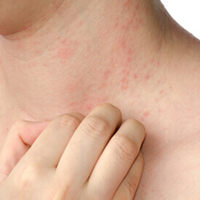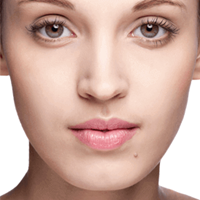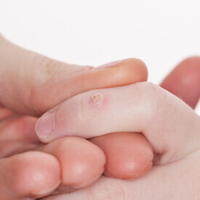About Actinic Keratosis
Actinic keratosis (AK) or solar keratosis is a scaly, rough, and crusty patch of skin, which grows in areas exposed to the sun. Usually, the skin has multiple lesion areas so the plural word for this condition is called actinic keratoses. These lesions appear on the lips, face, ears, scalp, shoulders, and other exposed areas. The lesions progressively develop with time and may vanish and reappear. Over time, patients notice that the lesions become more itchy, uncomfortable, and eventually inflamed. During a comprehensive skin assessment, Dr. Catherine Papasakelariou at Houston Premier Dermatology in Houston, TX will examine the lesion, sometimes using dermoscopy. This skin condition is a precancerous symptom so patients should proactively schedule appointments to ensure the lesion doesn't worsen. Otherwise, if not treated, it could become cancerous. During your exam, Dr. Papasakelariou will probably suggest removing the lesion(s), but before beginning treatment, she will thoroughly discuss your options.
Reviews
Actinic Keratosis Causes
Prolonged exposure to the sun is one of the main reasons for actinic keratosis and is more prevalent in elderly individuals because of sun damage. While only a small number of actinic keratosis cases advance to skin cancer, you should understand the important skin symptoms to look for and how often to schedule an appointment. In our consultation, we will discuss the symptoms and treatments at length. In a lot of cases, this skin condition shows up as lesions that look scaly and red. In addition to the lesions, patients will likely experience bumps and dark, crusty areas that appear in multiple clusters, which do not go away.
Symptoms
When the condition first starts, it might only feel like rough-textured skin. Sometimes, this spot will itch and become irritated. As time passes, particularly if the skin is exposed to sunlight, the patchy area will become reddish, scaly, raised, and inflamed and continue to spread. The further they spread, the higher the odds of developing skin cancer. If you have any of these symptoms, please schedule an appointment as soon as possible. During your appointment, we can provide treatment and we can discuss future prevention.
Treatment Options
Prompt intervention and treatment are essential so that a single actinic keratosis (or keratoses) doesn't become skin cancer. The treatment option recommended will vary, depending on numerous factors, such as your health and age, skin color, size of the lesion(s), and the growth characteristics. Usual treatment options include:
- Cryosurgery – a treatment that uses liquid nitrogen to destroy lesions
- Electrodesiccation and Curettage – a procedure that eliminates skin lesions by scraping the skin down to an unaffected layer
- Medicines – certain medication can help minimize the look and size of lesions and decrease the incidence of scarring
- Chemical peels – certain agents found in chemical peels can eliminate the top layer of the affected skin, prompting new growth and replacing the damaged tissue

Reverse Sun Damage
If you have lesions that you think happened because of increased sun exposure, you may have actinic keratosis. Also, if our doctor has previously diagnosed you with actinic keratosis, you should maintain regular appointments and always watch for changes. If you notice any changes, we recommend scheduling an appointment at Houston Premier Dermatology in Houston, TX. If found and treated early, Dr. Papasakelariou can eliminate almost all actinic keratosis. During your consultation, Dr. Papasakelariou will complete a thorough evaluation of your skin and determine the best treatment for a healthy, long-term outcome.













